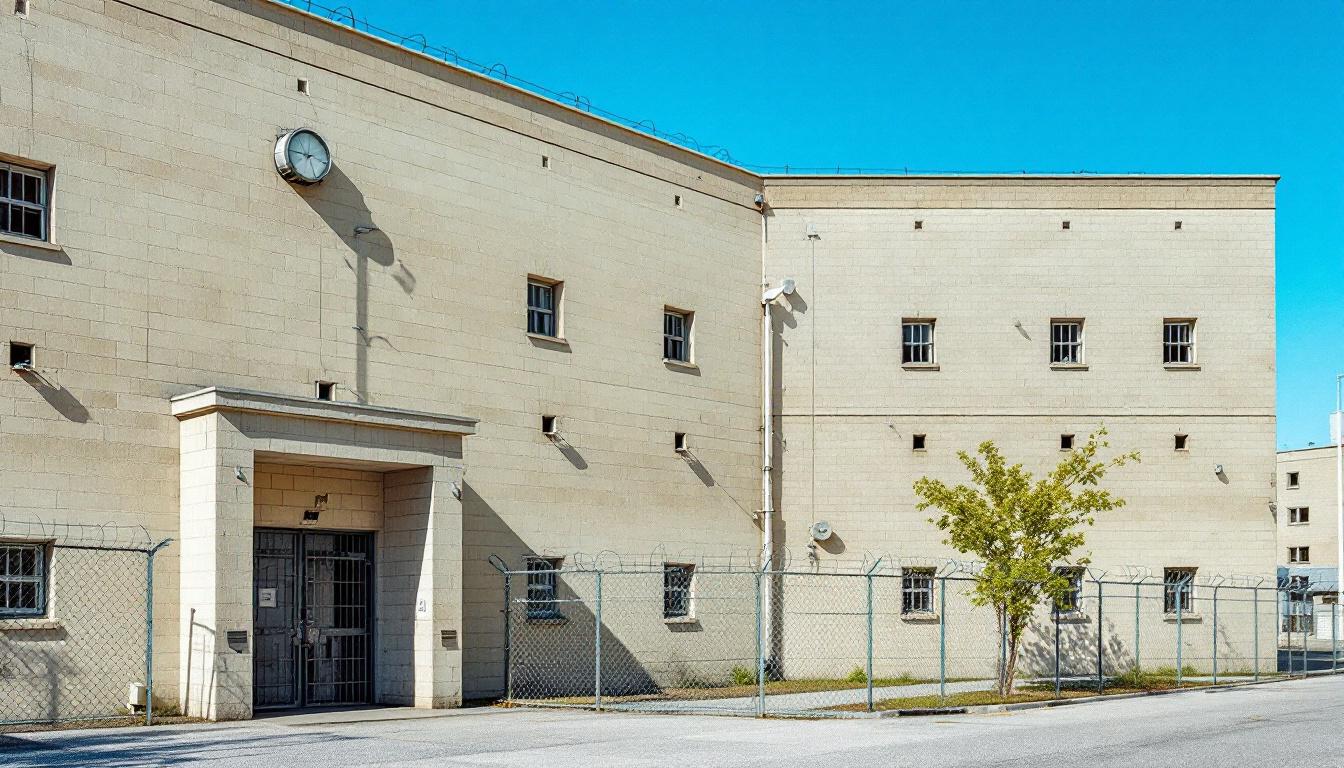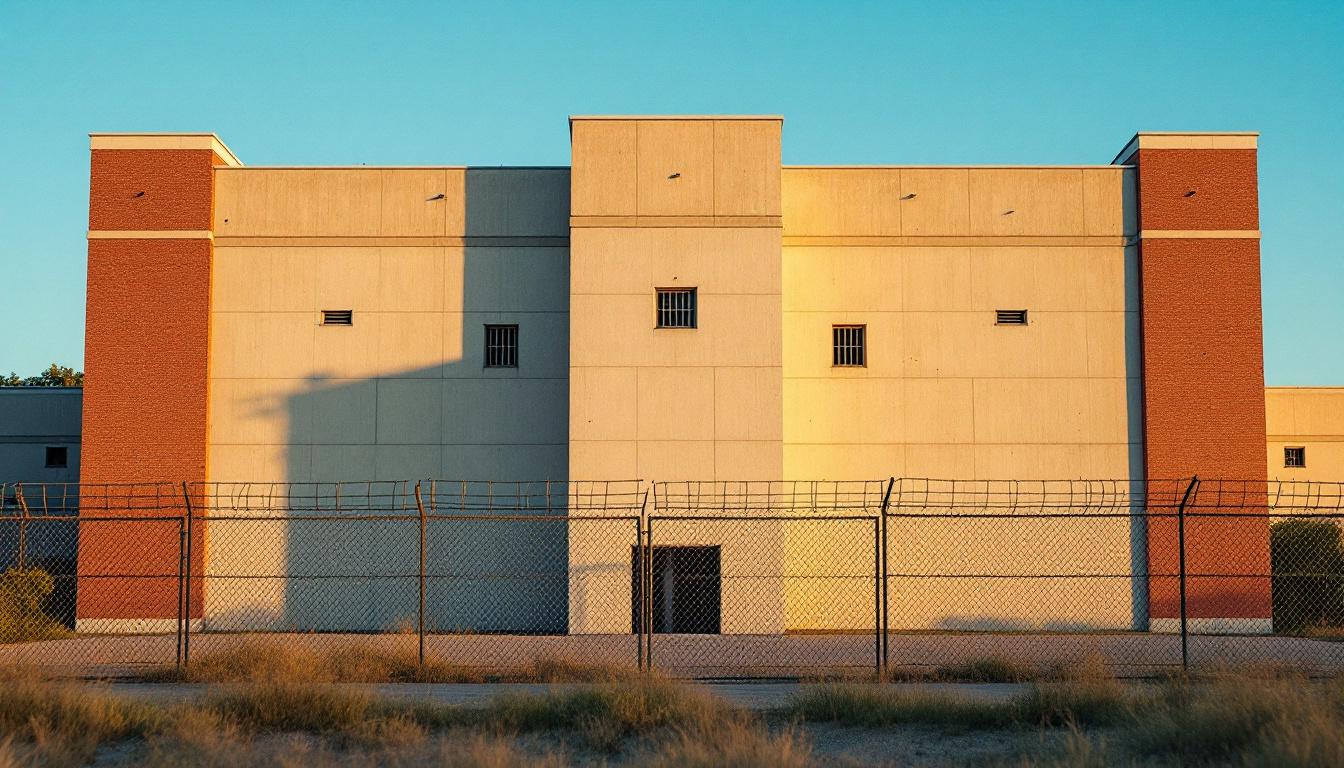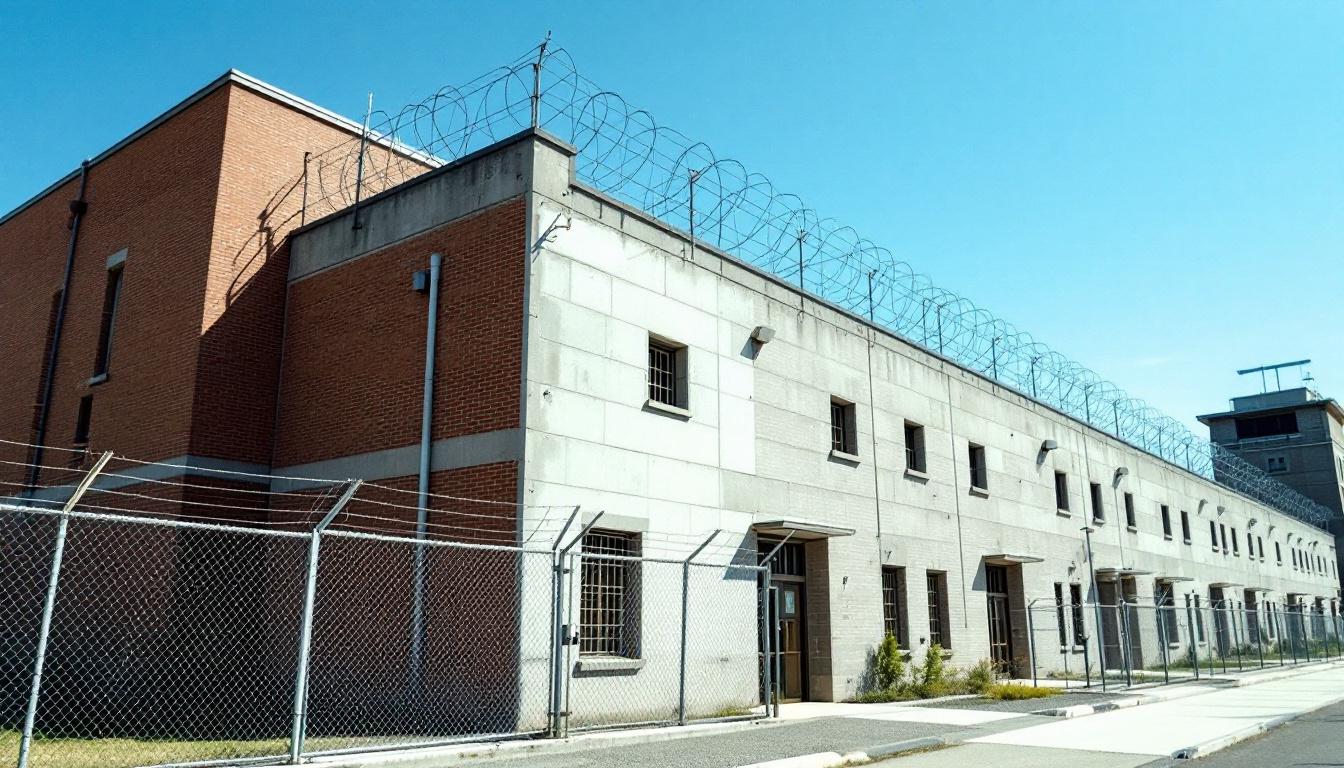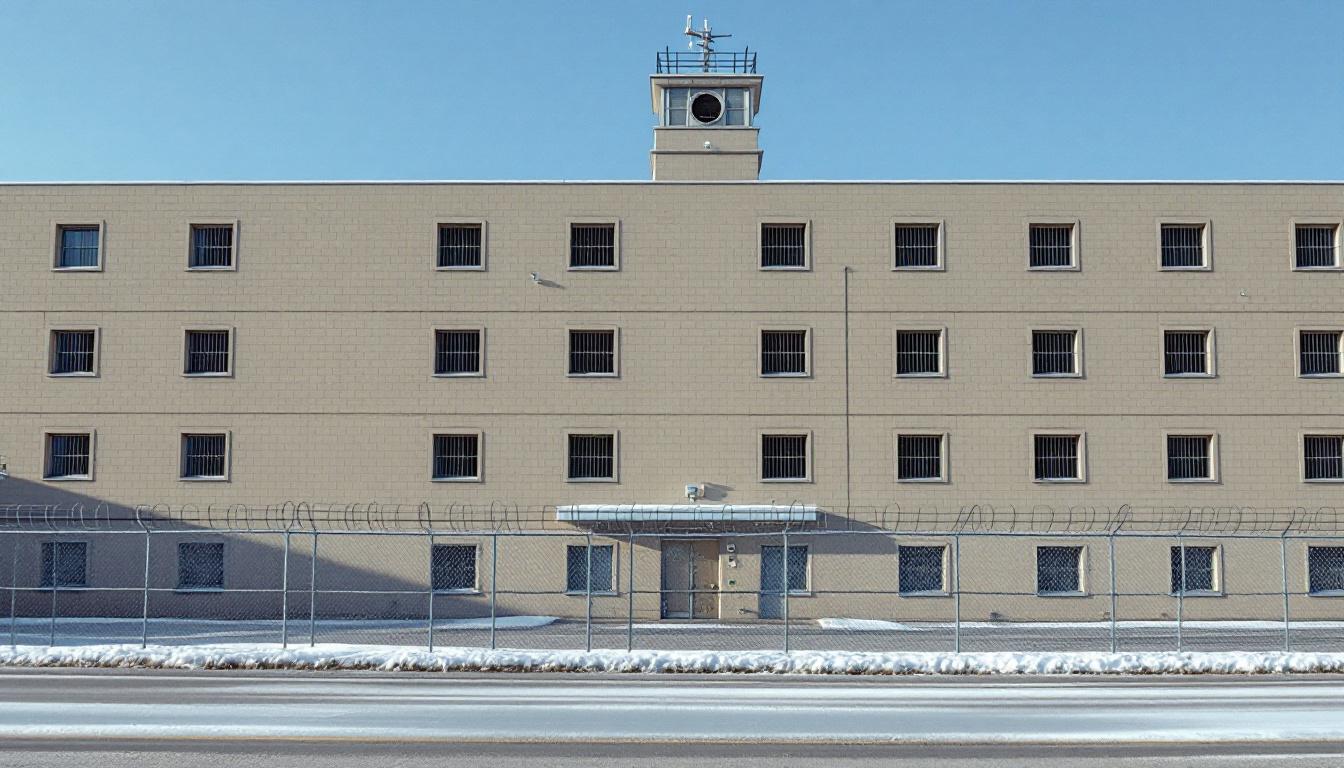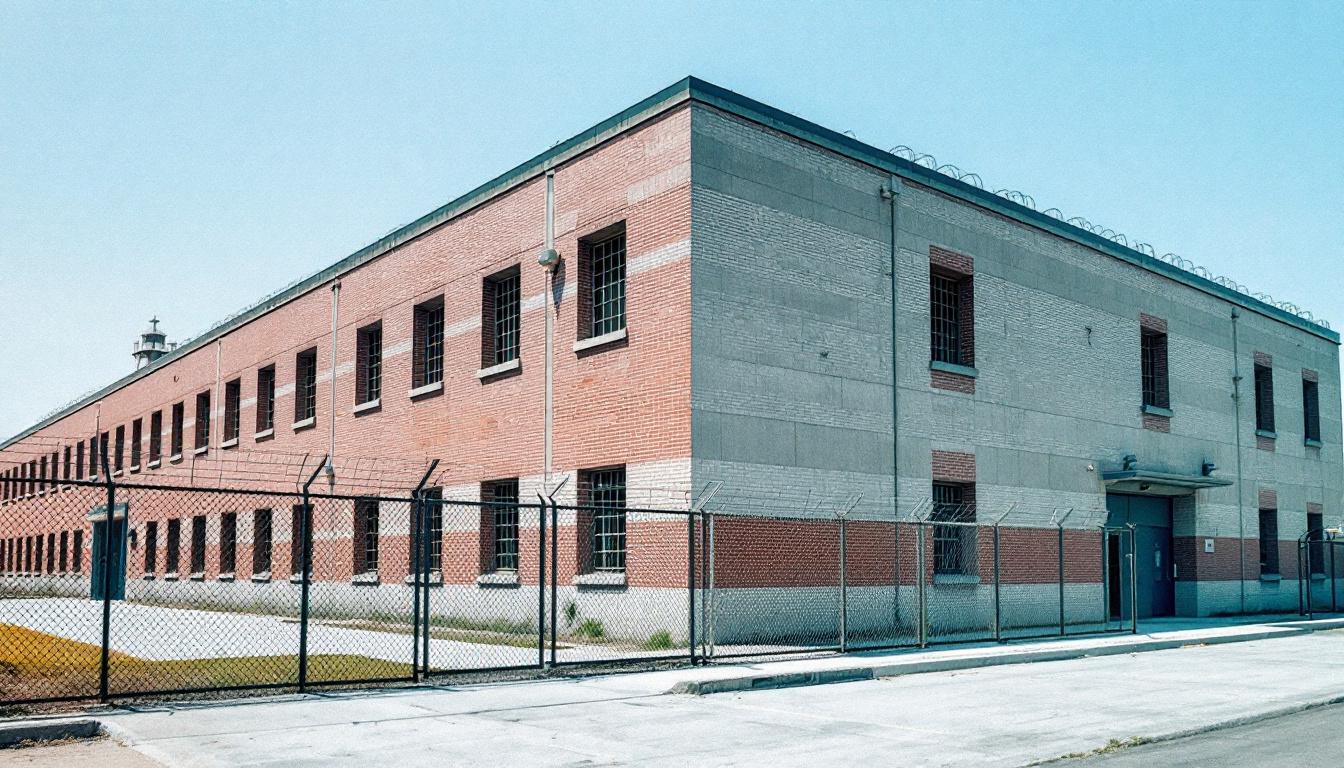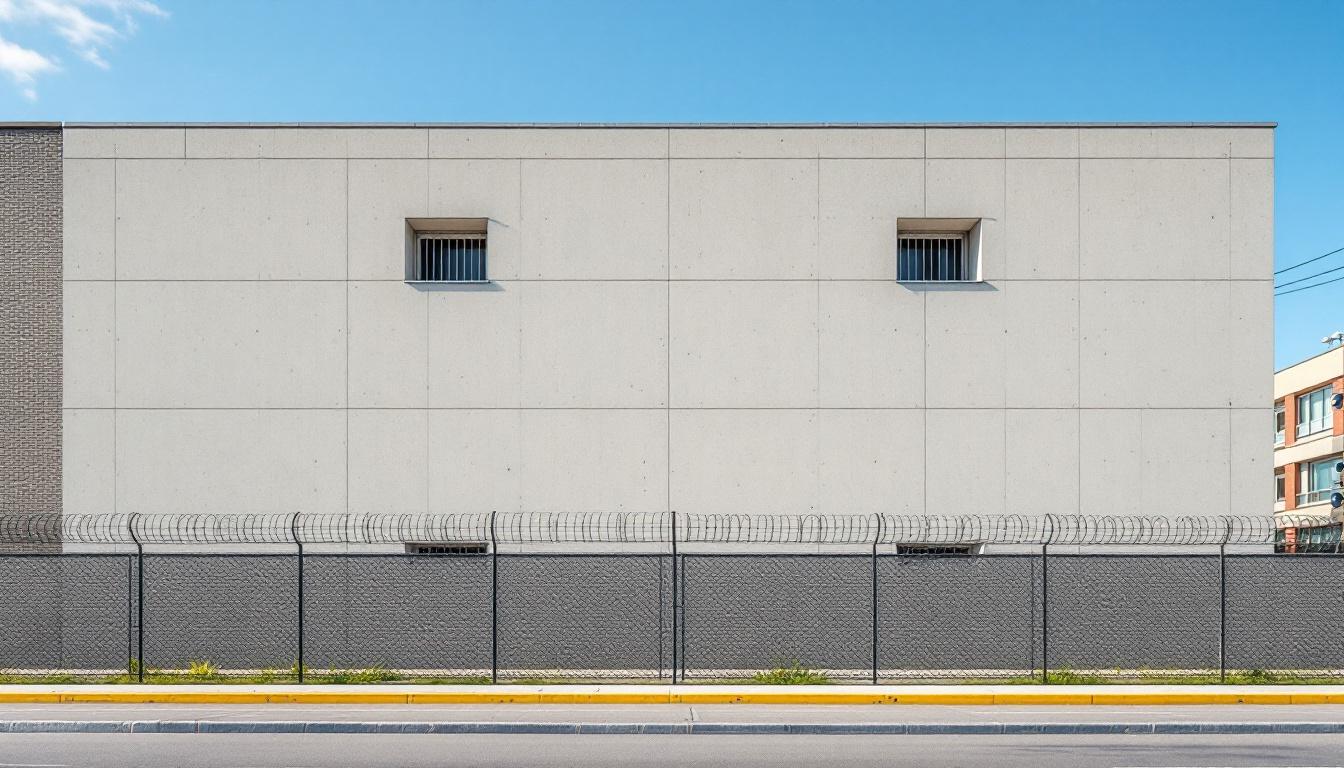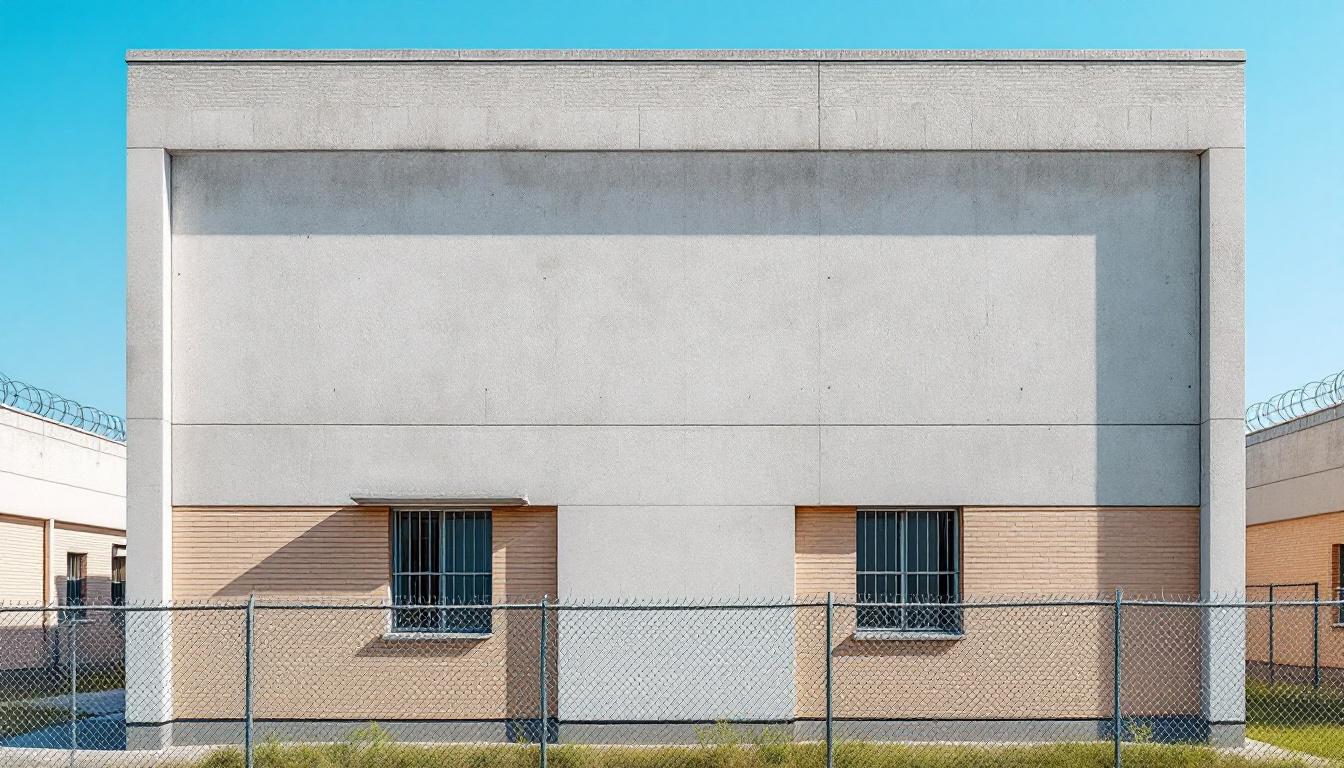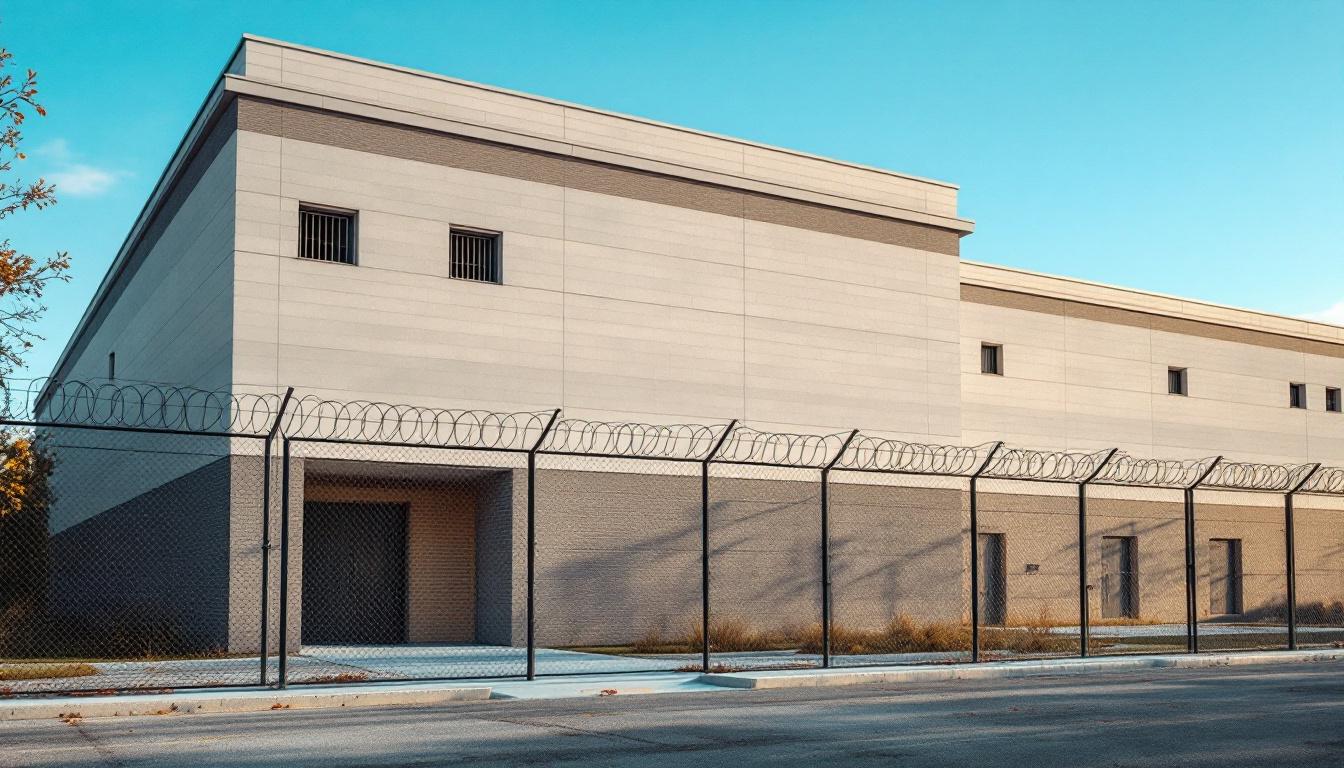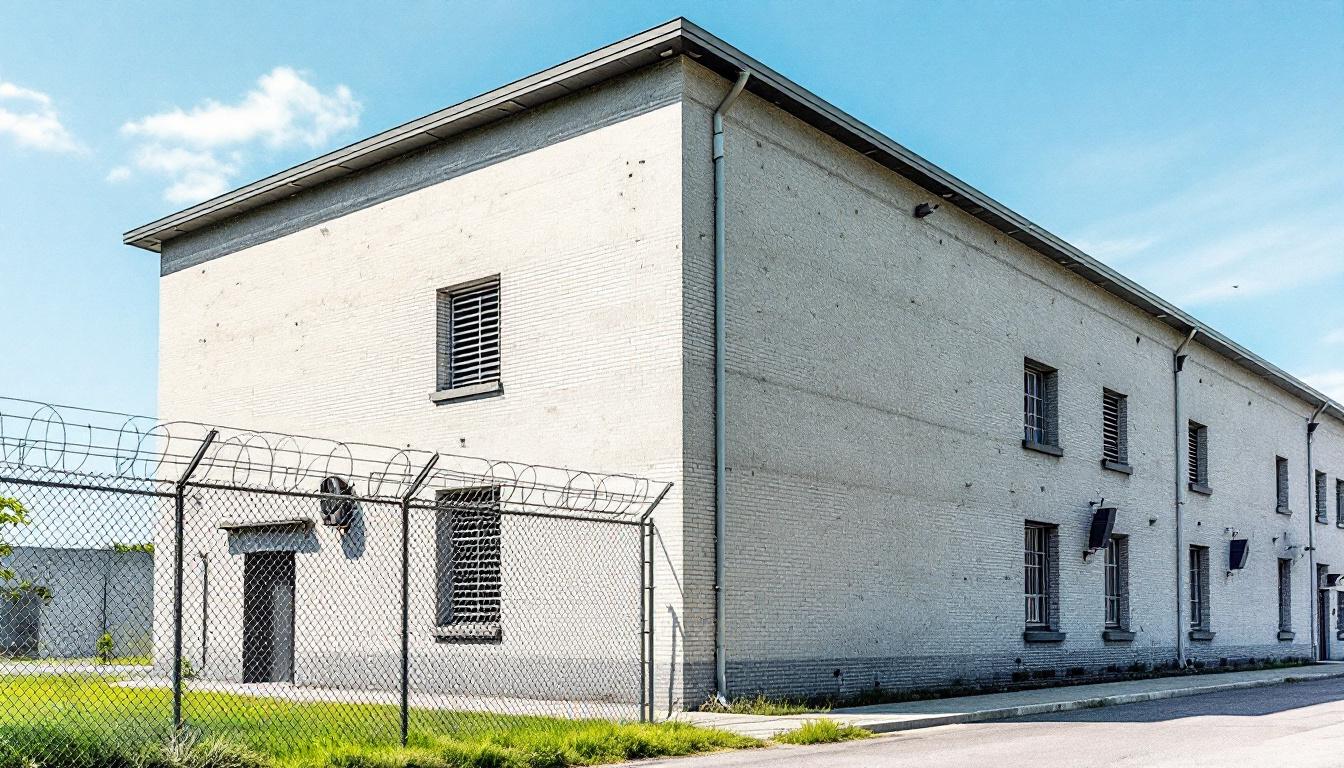
Quick Navigation
How to contact an inmate at Powell County Detention Center
This comprehensive guide will walk you through how to connect with an inmate at Powell County Detention Center. Follow the steps below to find an inmate and send letters and photos:
- Search for the inmate using our search tool below
- Create your account or log in to Penmate
- Write your message (up to 6,000 characters)
- Send instantly - inmates receive printed copies daily
Find an Inmate
Search for an inmate to start communicating today
Tip: You can search by first name, last name, or inmate ID number
To contact a person at Powell County Detention Center start by searching for the person on the official facility website. Perform a search by following these steps:
- Step 1: Enter their first name and last name into the search form and click "Search"
- Step 2: Locate their inmate record
- Step 3: Write down their Inmate ID and any housing information provided
Important! Be sure to enter the person's full name. Nicknames should not be used.
How to Send Messages to Inmates

You can use your phone or computer to send emails, letters, and photos to an inmate. Messages are sent electronically to inmate tablets or kiosks at the facility. If you would like to send a message, start by searching for an inmate at Powell County Detention Center.
Sending Photos and Postcards

A great way to send love and support to a loved one at Powell County Detention Center is to send photos and postcards. It only takes a few minutes to send photos from your phone and it makes a huge difference. You can also mail postcards with words of support and inspiration, or design your own postcard for special moments like birthdays and holidays.
Important! Be sure not to send any explicit photos or they may not be approved by the facility. You can also use a photo printing app like Penmate to make sure your photos are printed at the correct size (4x6 or 3x5) and are mailed according to the rules and regulations of Powell County Detention Center.
Frequently asked questions about Powell County Detention Center
-
How long does it take to deliver a message?
If you're sending an email message your letter is usually delivered within 24-48 hours. For messages sent via mail you should expect delivery within 3-7 days. All messages will need be approved by Powell County Detention Center.
-
How much does it cost to send a message to Powell County Detention Center?
You can send a message free using your phone or mail a message via USPS for the price of a $0.60 stamp and envelope. You can also purchase credits or e-stamps from services starting at $1.99.
-
What services can I use to contact an inmate at Powell County Detention Center?
Penmate
You can use Penmate to send letters and photos to an inmate from your phone. It's an easy way to stay in touch during your loved one's incarceration. Use the inmate locator to find an inmate's location and contact information, then you can send messages within a few minutes.
Securus messaging
Securus may be another option for communicating with an inmate at Powell County Detention Center. You can create a friends and family account and purchase credits to send messages. All messages will be reviewed and must be approved by the facility.
JPay
Some county jails and state prisons may support sending messages with JPay. You must register an account with the system, find your loved one, and purchase stamps to send messages. For some locations you can also attach photos.
Smart Jail Mail
You may also check if Smart Jail Mail is available at Powell County Detention Center. Smart Jail Mail is operated by Smart Communications and has contracted with some state and county jails. After purchasing credits, your messages and photos are sent to the facility, printed out, and then handed out to your loved one.
-
What is the mailing address of Powell County Detention Center?
Mailing address:
Powell County Detention Center
755 Breckenridge St
Stanton, KY 40380
Phone: (606) 663-6400Business hours:
- Monday: Open 24 hours
- Tuesday: Open 24 hours
- Wednesday: Open 24 hours
- Thursday: Open 24 hours
- Friday: Open 24 hours
- Saturday: Open 24 hours
- Sunday: Open 24 hours
-
What are the visiting hours at Powell County Detention Center?
Visiting hours at Powell County Detention Center vary by housing unit and security level. Generally, visits are scheduled on weekends and holidays, with some facilities offering weekday visits. Contact the facility directly at (606) 663-6400 or check their website for the current visiting schedule. Visits typically last 30-60 minutes and must be scheduled in advance.
-
What items are prohibited when sending mail to Powell County Detention Center?
Prohibited items typically include: cash, personal checks, stamps, stickers, glitter, glue, tape, staples, paperclips, polaroid photos, musical or blank greeting cards, hardcover books, magazines with staples, and any items containing metal or electronics. Only send letters on plain white paper with blue or black ink. Photos must be printed on regular photo paper (no Polaroids). Always check with Powell County Detention Center for their specific mail policies.
-
How do I send money to an inmate at Powell County Detention Center?
You can send money to an inmate at Powell County Detention Center through several methods: 1) Online using JPay, Access Corrections, or the facility's approved vendor, 2) Money orders mailed directly to the facility with the inmate's name and ID number, 3) Kiosks located in the facility lobby, or 4) Over the phone using a credit or debit card. Fees vary by method, typically ranging from $2.95 to $11.95 per transaction.
-
Can I schedule a video visit with an inmate at Powell County Detention Center?
Many facilities now offer video visitation as an alternative to in-person visits. At Powell County Detention Center, video visits may be available through services like Penmate, Securus Video Connect, GTL, or ICSolutions. Video visits typically cost $10-20 for 20-30 minutes and must be scheduled in advance. You'll need a computer or smartphone with a camera and reliable internet connection. Contact the facility for their specific video visitation policies and approved vendors.
-
What identification do I need to visit an inmate at Powell County Detention Center?
All visitors must present valid government-issued photo identification such as a driver's license, state ID, passport, or military ID. Minors must be accompanied by a parent or legal guardian who can provide the minor's birth certificate. Some facilities require visitors to be on the inmate's approved visitation list, which may require a background check. Contact Powell County Detention Center for specific ID requirements and visitor approval procedures.
-
How can I find out an inmate's release date?
To find an inmate's release date at Powell County Detention Center, you can: 1) Use the online inmate search tool if available, 2) Call the facility's records department, 3) Contact the inmate's case manager or counselor, or 4) Have the inmate provide this information during a call or visit. For privacy reasons, some facilities only release this information to immediate family members.
Facility Overview
Contact Information
Powell County Detention Center755 Breckenridge St
Stanton, KY 40380
Phone: (606) 663-6400
Official Website

About Powell County Detention Center
Evidence-based rehabilitation programming and comprehensive reentry preparation form the foundation of operations at Powell County Detention Center, where individuals services extend beyond basic detention to encompass educational opportunities, substance abuse counseling, and workforce development initiatives. Located in Stanton, KY, this correctional facility typically serves the local judicial system while maintaining focus on measurable outcomes that reduce recidivism and strengthen community safety throughout the region.
The detention center generally operates within Kentucky's broader correctional framework, processing individuals from Powell County and surrounding areas through various stages of the legal process. Programming may include vocational training opportunities, mental health support services, and educational advancement options designed to address underlying factors that contribute to criminal behavior. These evidence-based approaches often emphasize skill development and personal accountability, preparing participants for successful community reintegration.
Serving the Stanton area and broader south region, the facility typically maintains connections with local employers, educational institutions, and social service organizations to create pathways for post-release success. Family visitation programs and communication services generally support maintaining community ties during incarceration, while case management services may help coordinate housing, employment, and continued treatment upon release. This comprehensive approach reflects modern correctional practices that prioritize both public safety and individual transformation through structured, outcome-driven interventions.
Programs & Services
The multifaceted approach to individual development at Powell County Detention Center encompasses a broad spectrum of opportunities designed to address the diverse needs of those in custody. Through carefully structured programming that spans educational advancement, vocational skill development, and therapeutic intervention, the facility typically maintains a comprehensive framework that recognizes rehabilitation as a multidimensional process. This holistic philosophy acknowledges that meaningful change often requires addressing various aspects of an individual's circumstances simultaneously, from basic educational needs to specialized therapeutic support.
Educational opportunities frequently serve as the foundation for personal growth, with services that may include adult basic education, literacy enhancement, and preparation for high school equivalency examinations. Moreover, vocational training opportunities often provide individuals with practical skills that translate directly to employment prospects upon release. These hands-on learning experiences typically encompass specialized trades such as barbering and cosmetology, which offer certification pathways, as well as building maintenance programs that develop technical competencies in facility operations and general construction skills.
The therapeutic and support dimensions of programming address both immediate needs and long-term recovery goals through evidence-based interventions. Substance abuse treatment services typically form a cornerstone of these efforts, often incorporating both individual counseling and group therapy sessions that foster peer support and accountability. Moreover, specialized services for veterans may provide targeted assistance that addresses the unique challenges faced by those who have served in the military, while comprehensive support services help individuals navigate the complexities of reentry planning and community integration.
Daily Life & Visitation
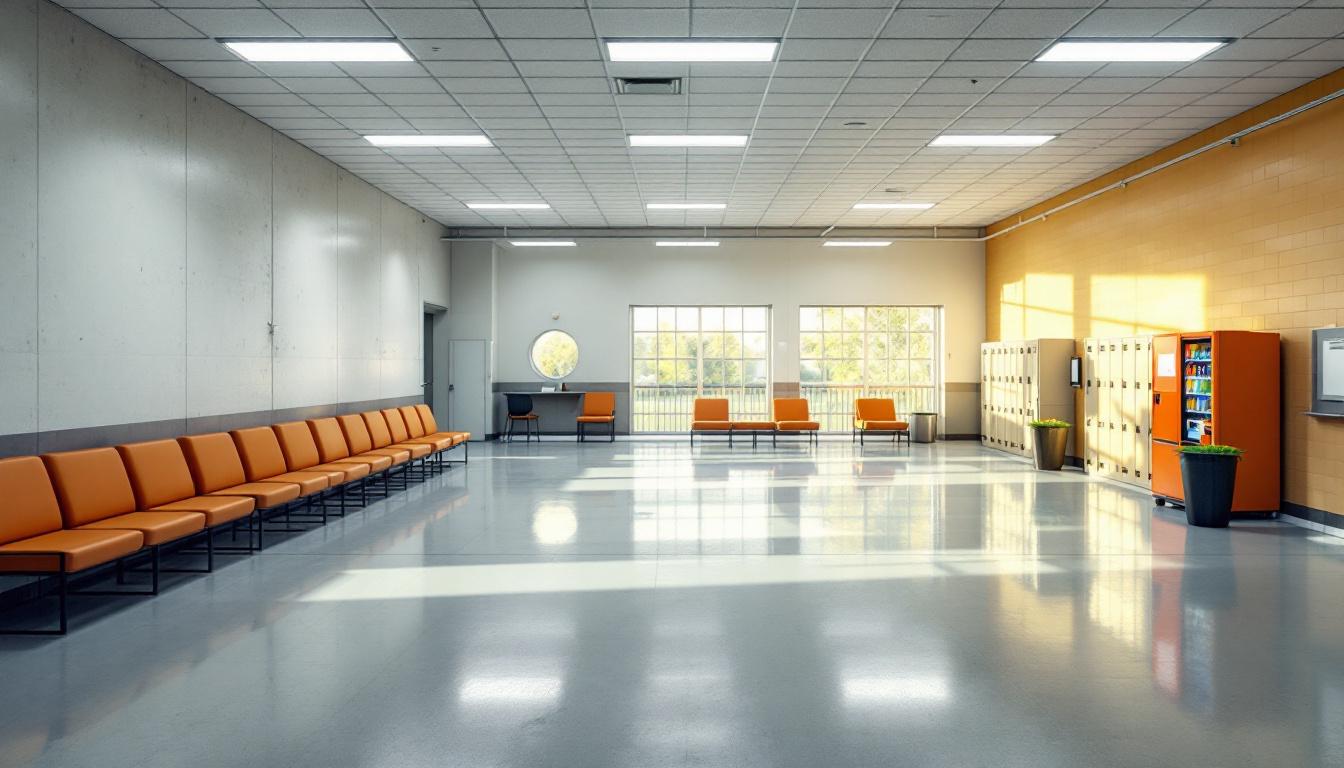
The steady rhythm of count times punctuates each day, creating a structured framework that individuals at Powell County Detention Center now navigate as part of their routine. These regular accountability checks typically occur multiple times throughout the day, with individuals required to be present and accounted for in their designated housing areas. The facility generally operates on a schedule that includes meal times, recreation periods, and programming opportunities, though the specific timing may vary based on housing unit assignments and security classifications.
Living accommodations at the facility typically consist of dormitory-style housing units or individual cells, depending on classification levels and available space. Individuals generally share living spaces with others and have access to basic amenities such as bedding, personal hygiene items, and limited personal property storage. Moreover, the facility usually provides three meals daily in a common dining area, with menus that aim to meet basic nutritional requirements while accommodating certain dietary restrictions or medical needs. Personal items may often be supplemented through commissary purchases, allowing individuals to obtain additional food items, hygiene products, and approved personal supplies.
Structured programming schedules typically offer various activities designed to provide meaningful engagement during incarceration. Recreation opportunities may include outdoor yard time when weather permits, indoor exercise options, and access to television or reading materials in common areas. Whereas recreational activities provide physical and mental stimulation, visitation policies generally allow individuals to maintain connections with family and friends through scheduled visits, which may be conducted in-person or via video conferencing systems. Communication with the outside world typically includes monitored phone calls and correspondence, helping individuals maintain important relationships and support systems during their time at the facility.
Ready to Connect?
Start communicating with your loved one today
Search for an Inmate
